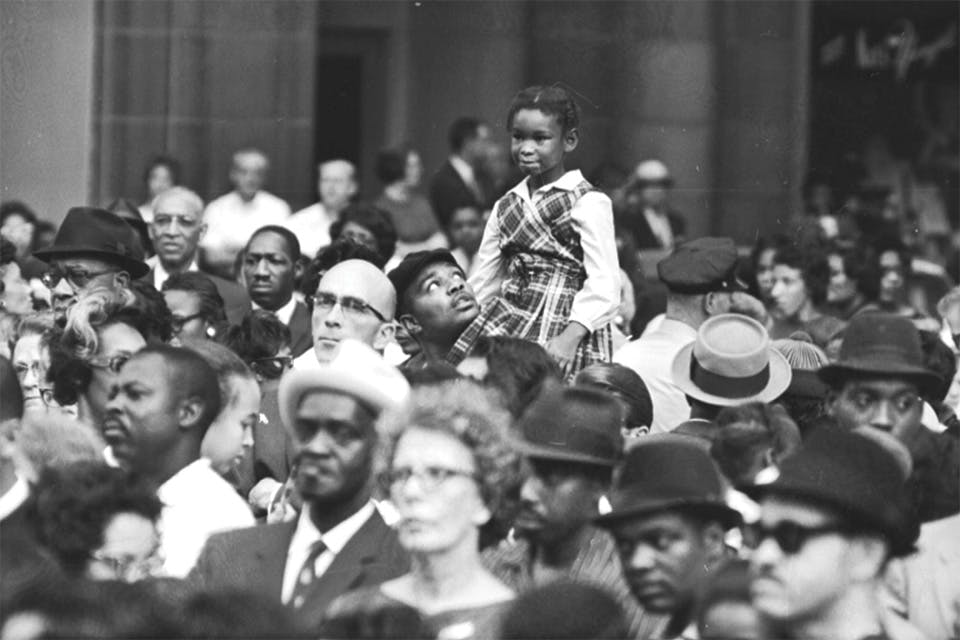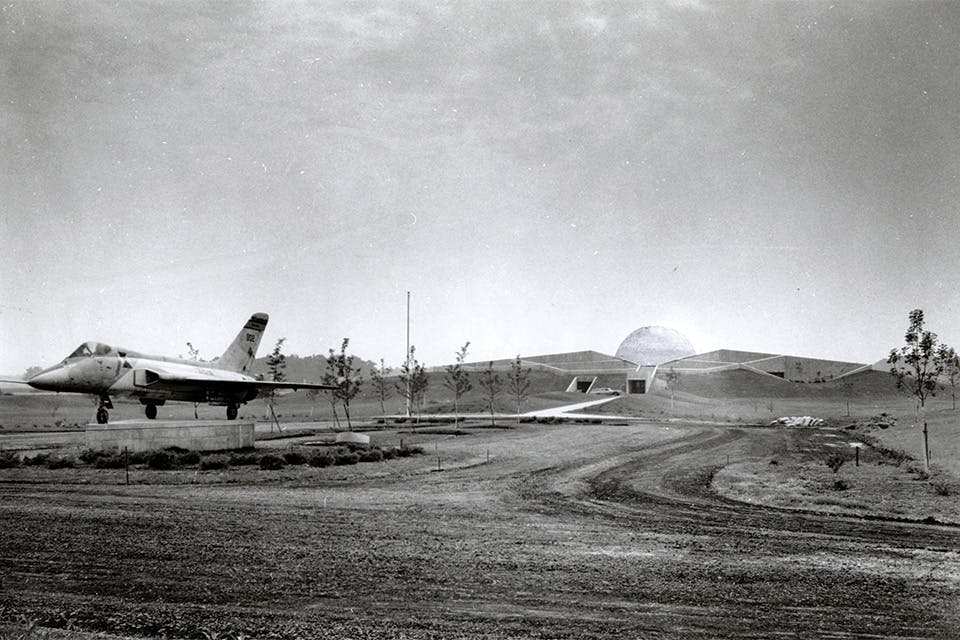Bicentennial Wagon Train Visits Richfield
On June 4, 1976, the transcontinental Bicentennial Wagon Train stopped in northeast Ohio during its trek to reach Valley Forge, Pennsylvania, in time for Independence Day.
Related Articles

Columbus Celebrates Armistice Day
On Nov. 11, 1918, Ohio’s capital city joined communities across the United States in spontaneous celebration marking the end of World War I. READ MORE >>

Cincinnati’s 1963 March and Vote for Jobs and Freedom
In the fall of 1963, nine days before municipal elections, a march and rally at the city’s Fountain Square focused on the pivotal role Black voters played in the upcoming vote. READ MORE >>

Armstrong Air & Space Museum Opens in Wapakoneta
On July 20, 1972, the museum showcasing aviation and space history was unveiled in the famed astronaut’s hometown. READ MORE >>




